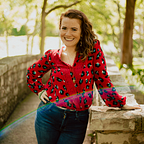Sit Down, Karen
I often go to social justice events that are heavily attended by White people. While this is incredible and speaks to progress, there are also times I just want to yell at all the Karens in attendance. From these events, I realize that as White people try to learn more and process how they can do better, it is also important to acknowledge the spaces that are not for them. When there is a protest for Black Lives Matter, it’s about Black Lives. Show up, hold the signs, chant, but this is for BLACK LIVES. When there is an event remembering racial atrocities in our history, please don’t take the mic and share how sad you are your ancestors would do such a thing. When you’re in a story circle, please don’t use all the buzz words you know to seem “woke” to your Black friends. Events like these are so powerful and yet can be even more upsetting to people of color when White people insert their stories and feelings. So, let’s break down three lessons the Karens of this world can live by.
1. Just Shut Up.
There is a time to share, and there is a time to shut up. In a world where we base our value on accomplishments, we are taught to preface topics with our credentials and where “we are coming from”. We get it. You have a PhD in I know everything, and you want to talk to us from that lens so you don’t seem like an asshole. But you do. When you ask for documents to add to the depth of a Black narrative, that’s your privilege talking. Do you know how few years Black folks have had large platforms or the ability to write their own stories?You didn’t think of that did you? Next time you want to ask for evidence, please stop talking. The evidence is the Black person themselves. Whatever they say is centuries of ancestral heritage, history making, struggle, weathering, and their story matters. End of sentence, Karen.
2. Spare Us Your Emotional Moment.
We get it. Your ancestors were horrible slave owners and you love all people and your Black neighbor is your best friend. Blah, blah, blah. Thanks for sharing. Did that make you feel better? When you do this, the whole dynamic in the room changes from racial healing and progressive conversation to you needing a pat on the back because you would never use the n word. It’s not that you can’t share, it’s that it’s not about you. Your feelings are absolutely valid, but WHERE you process them is what’s important. Reach out to another White person doing the same emotional work you’re doing. Talk to your therapist. Talk with your kids. But when you talk with a person of color about how sad you are, it’s frustrating because they have probably needed a place to process and you haven’t understood until now. Take the time to process, but some spaces are for you and some are not.
3. Your Actions Matter Way More Than Your Words.
Nobody is perfect. We all have our biases and our past experiences shape our opinions. However, you can say all your fancy words and post all the articles on social media and your Black friend calls you woke af, but if you can’t back your words up on the daily, it means nothing. So you can use “equity” and “systemic oppression” all you want, but if you got off the side walk because the Black guy in the hoodie was walking toward you, go sit down. Or more covertly, if you use the “woke” words in one breath but are talking about “them”, go sit down. In short, someone is always watching and your actions matter whether it’s at brunch with mimosas and your White friends or if you’re in an all Black neighborhood. Be consistent.
All this said, we don’t hate you Karen. Okay, maybe we do sometimes. But if you’re trying to do better, that’s a good thing. But don’t expect a pat on the back because you have a whole Instagram devoted to Obama and Issa Rae. There’s work to do and while it’s your work to do, the voices that matter are the ones who have been silenced since the beginning of our country’s inception. Do the work, just do it less loudly. Which brings me back to my first point…just shut up.
